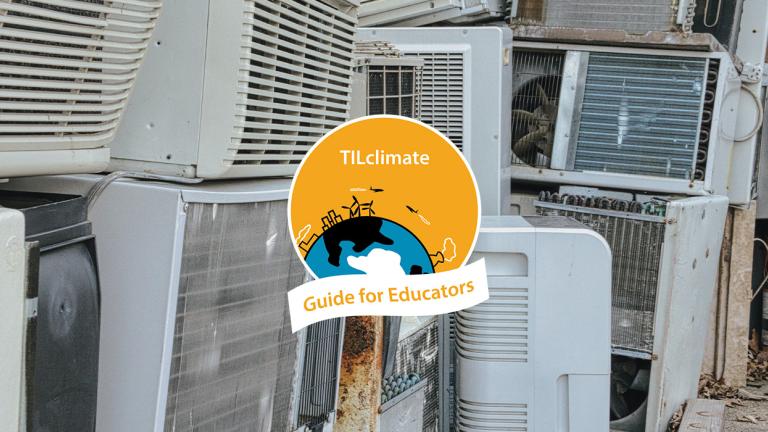
This Guide for Educators was developed by the MIT Environmental Solutions Initiative as an extension of our TILclimate (Today I Learned: Climate) podcast, to make it easier for you to teach climate change, earth science, and energy topics in the classroom. It is an extension of the TILclimate episode "Don't throw away your refrigerator".
Browse all TILclimate guides for educators.
Description
Refrigeration and cooling make food safer, people more comfortable, and protect us in heat waves. The chemicals used to power cooling can be extremely powerful greenhouse gases, adding to climate change. Students investigate the Montreal Protocol, CFC and HCFC replacement, summer heat patterns, and the physics of infrared energy. Then, they investigate two real-world questions in their local community.
SWBAT
- Summarize the goals of the Montreal Protocol and its Amendments
- Concisely explain why CFCs have been replaced with other compounds
- Understand why refrigerants contribute to climate change
- Explain the relationship between warmer summers and increased use of refrigerants
- Investigate real-world questions in their local community
Skills
- Reading formal texts
- Science communication
- Graph reading
- Map reading
- Real-world investigation
Standards:
- HS-ESS2-4 Use a model to describe how variations in the flow of energy into and out of Earth’s systems result in changes in climate.
- HS-ETS1-3 Evaluate a solution to a complex real-world problem.
- HS-PS2-6 Communicate scientific and technical information about why the molecular-level structure is important in the functioning of designed materials.
- RST.9-12.2 Determine the central ideas or conclusions of a text
- RST.11-12.9 Synthesize information from a range of sources into a coherent understanding of a process, phenomenon, or concept.
Disciplinary Core Ideas:
- ESS3.C Human Impacts on Earth Systems
- ESS3.D Global Climate Change
What is included in this Educator Guide
- How to use TILclimate Educator Guides (Download)
- Full Educator Guide (Download)
- Includes both Teacher and Student pages
- Includes both Teacher and Student pages
- Teacher pages (Download) (Google Drive)
- Includes materials, discussion questions, background resources, and adaptation suggestions for science, social science, and ELA teachers
- Includes materials, discussion questions, background resources, and adaptation suggestions for science, social science, and ELA teachers
- Student pages (Download all)
- Reading: The Montreal Protocol (Google Drive)
- Data Analysis: Telling a Story with Data (Google Drive)
- Data Analysis: Summer Heat (Google Drive)
- Data Visualization: Infrared Windows (Google Drive)
- Real-world Investigation: Where Do Your Refrigerants Go? (Google Drive)
- Real-world Investigation: Investigate Your Supermarket (Google Drive)
Listen to the episode


